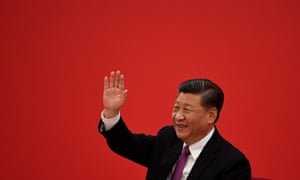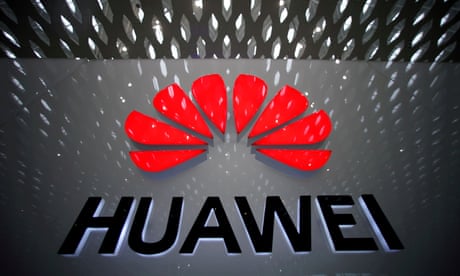Kate Lyons
 China has ordered that all foreign computer equipment and software be removed from government offices and public institutions within three years, the Financial Times reports.
China has ordered that all foreign computer equipment and software be removed from government offices and public institutions within three years, the Financial Times reports.
The government directive is likely to be a blow to US multinational companies such as HP, Dell and Microsoft, and mirrors attempts by Washington to limit the use of Chinese technology, as the trade war between the countries turns into a tech cold war.
The Trump administration banned US companies from doing business with the Chinese telecoms company Huawei this year and Google, Intel and Qualcomm announced they would freeze cooperation with Huawei.
By excluding China from western knowhow, the Trump administration has made it clear that the real battle is about which of the two economic superpowers has the technological edge for the next two decades.
Huawei under fire in China over employee detained for eight months
This is the first known public directive from Beijing setting specific targets limiting China’s use of foreign technology, though it is part a wider move within China to increase its reliance on domestic technology.
The FT reported that the directive would result in an estimated 20m to 30m pieces of hardware needing to be replaced and that this work would begin in 2020. Analysts told the FT that 30% of substitutions would take place in 2020, 50% in 2021 and 20% in 2022.
The order had come from the Chinese Communist party’s central office earlier this year, the analysts said. Two employees from cybersecurity firms told the paper that government clients had described the policy.
Replacing all the devices and software in this timeframe will be challenging, given that many products were developed for US operating systems such as Windows. Chinese government offices tend to use desktop computers from the Chinese-owned company Lenovo, but components of the computers, including processor chips and hard drives, are made by American companies.
In May, Hu Xijin, the editor of the Global Times newspaper in China, said the withdrawal of sharing by US tech companies with Huawei would not be fatal for the company because Huawei has been planning for this conflict “for years” and it would prompt the company to develop its own microchip industry to rival America’s.
“Cutting off technical services to Huawei will be a real turning point in China’s overall research and development and use of domestic chips,” he said in a social media post. “Chinese people will no longer have any illusions about the steady use of US technology.”
Since you're here...
… we have a small favour to ask. More people, like you, are reading and supporting the Guardian’s independent, investigative journalism than ever before. And unlike many news organisations, we made the choice to keep our reporting open for all, regardless of where they live or what they can afford to pay.
The Guardian will engage with the most critical issues of our time – from the escalating climate catastrophe to widespread inequality to the influence of big tech on our lives. At a time when factual information is a necessity, we believe that each of us, around the world, deserves access to accurate reporting with integrity at its heart.
Our editorial independence means we set our own agenda and voice our own opinions. Guardian journalism is free from commercial and political bias and not influenced by billionaire owners or shareholders. This means we can give a voice to those less heard, explore where others turn away, and rigorously challenge those in power.
We hope you will consider supporting us today. We need your support to keep delivering quality journalism that’s open and independent. Every reader contribution, however big or small, is so valuable. Support The Guardian from as little as $1 – and it only takes a minute. Thank you.

No comments:
Post a Comment